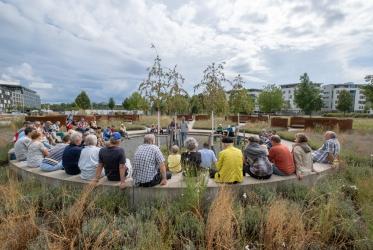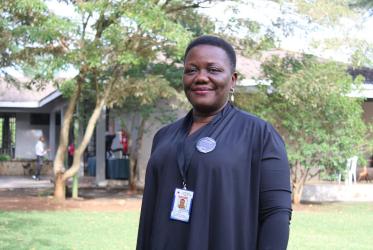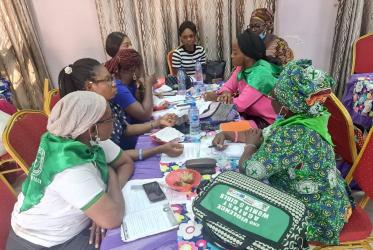Displaying 1 - 20 of 32
Kenyan woman peace-builder wins human fraternity award
14 February 2023
Workshop explores how interreligious dialogue brings trust and respect
15 September 2022
Ukraine: Responding to humanitarian need
08 September 2022
WCC leaders recall life-changing experiences from early days
10 February 2022


















